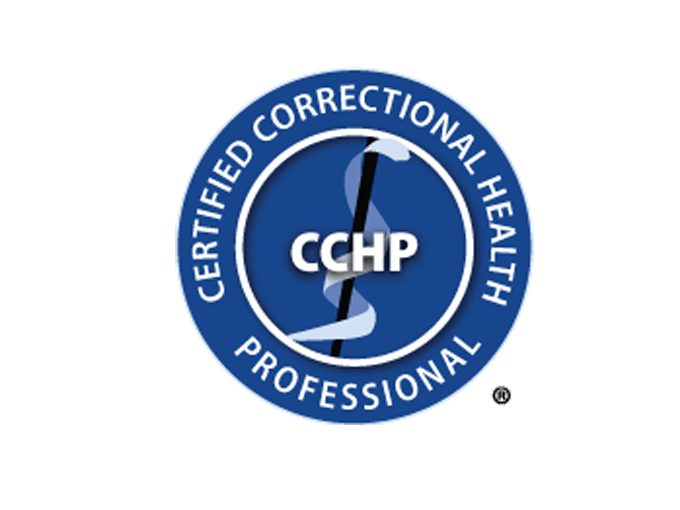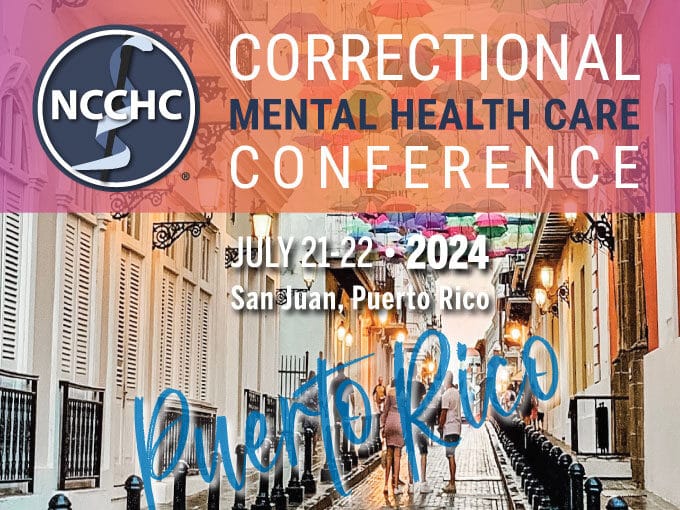
Standards Q&A: 75% Custody Health Training Requirement
Does the 75% requirement refer to all custody staff or only those working during
Home Care for Aging Patients in the Correctional Setting
 Apr 8, 2024
Apr 8, 2024by Newton Kendig, MD
NCCHC recently adopted a new position statement, Care for Aging Patients in the Correctional Setting, its first position statement to address the health care needs of the “graying” incarcerated population, a well-documented reality. According to the Bureau of Justice Statistics, adults aged 50 and older represented 20% of adults in U. S. state and federal prisons in 2021. By 2030, it is anticipated that about one-third of all U.S. incarcerated people will be over the age of 50. And because incarcerated people tend to present as 10 to 15 years older than their chronological age, their health care needs, disabilities, and vulnerabilities are even more acute.
For those reasons, my colleagues and I on the NCCHC Policy and Research Committee felt it was important for NCCHC to articulate its position on the complexities of caring for our growing population of aging incarcerated patients. We were fortunate to have access to the expertise of the University of North Texas Health Science Center, Center for Older Adults, who contributed much of the content for this position statement. The overarching recommendation for correctional health care is to adopt an age-friendly approach for older patients that uses evidence-based tools to assess and act upon four key areas: Mobility, Mentation, Medication, and What Matters – a framework widely used in geriatric medicine. Adapting the model to corrections required an appreciation of the many challenges our aging patients face while navigating the highly structured environment of a jail or prison.
The resulting position statement emphasizes that correctional health care professionals should proactively assess and address evolving health concerns in their aging patients.
Fall risk should be evaluated and treatments prescribed aimed at maintaining strength, balance, and flexibility. Periodic assessments for cognitive impairment, depression, and sensory deficits using evidence-based tools and protocols are recommended. Clinicians should recognize the potential risks of polypharmacy in their aging patients and adopt clinical guidance on safely prescribing medications utilizing the American Geriatrics Society Beers Criteria® for Potentially Inappropriate Medication Use in Older Adults (reference). Lastly, the concept of “What Matters” for aging patients emphasizes the importance of discussing and documenting advance directives and medical orders for life-sustaining treatment or MOLST (see NCCHC’s position statement on Medical Orders for Life-Sustaining Treatment).
Beyond providing direct patient care, the new position statement also recognizes the advocacy role of correctional health care professionals in caring for their aging patients. Examples include identifying cognitive or sensory deficits that are impeding the ability to obey orders from custody officials; recognizing the early signs of elder abuse; and providing timely and well-documented diagnostic evaluations for compassionate release.
The NCCHC Board and the Policy and Research Committee hope that this position statement will provide a useful framework for correctional systems as they develop policies, procedures, and clinical guidance for managing their older populations. We also hope that it will serve as a catalyst for promoting excellence in this important area of correctional health care.
Read the position statement here.
Find a list of all NCCHC position statements here.
Newton Kendig, MD, is the American College of Physicians liaison to the NCCHC Governance Board and vice-chair of the Policy & Research Committee.


